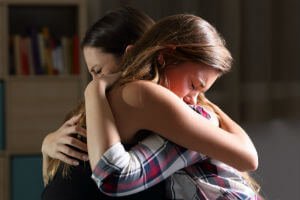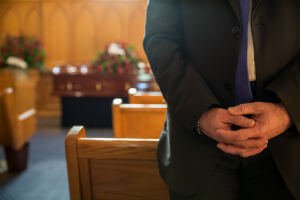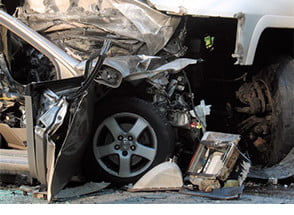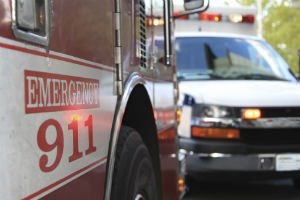 Most states have been under some form of shelter-in-place order for the last couple of months to help reduce the spread of COVID-19. However, what about vulnerable nursing home residents who relied on their long-term care facilities for virus management or essential workers who could not work remotely?
Most states have been under some form of shelter-in-place order for the last couple of months to help reduce the spread of COVID-19. However, what about vulnerable nursing home residents who relied on their long-term care facilities for virus management or essential workers who could not work remotely?
Below, our lawyers at Pfeifer, Morgan & Stesiak, discuss when a COVID-19 death may be eligible for a wrongful death lawsuit.
If you believe your loved one suffered a fatal COVID-19 injury due to negligence, then we encourage you to contact an attorney as soon as possible.
Our knowledgeable lawyers are available to meet with you in a confidential and free initial consultation. We can discuss the circumstances that caused your loved one’s death and determine if you may have legal options. There are no upfront costs if we represent you, and you pay us nothing unless we achieve a recovery on your behalf.
How Negligence May Play a Role in Spreading COVID-19
In a COVID-19 wrongful death claim, there are two groups of people that have been especially impacted by the pandemic:
Essential Workers
Those who were considered essential employees, such as frontline workers, delivery drivers, food shoppers, warehouse workers and more, continued to work throughout even the peak of the virus outbreak and were, by nature, at an increased risk for contracting the virus.
However, employers still owed a duty of care to their staff to take reasonable steps to protect them and prevent the spread of the disease, such as implementing protocols and guidelines as recommended by the Centers for Disease Control (CDC).
Unsafe conditions that may have contributed to the deaths of some essential workers include:
- Neglecting to warn the employee about the increased risks of infection
- Failure to provide sufficient personal equipment protection (PPE)
- Failure to implement social distancing measures in the work environment
- Neglecting to regularly screen employees for potential infection
- Failure to enforce “staying home if sick” policies
- Neglecting to disinfect the workplace
- Failure to provide alcohol-based hand sanitizers or implement handwashing protocols
- Neglecting to inform an employee if a co-worker had become infected with the virus
Nursing Home Residents
Nursing home residents were also high risk from day one, because of their age, the fact that many have underlying health conditions, and because they have daily, close interaction with those responsible for their medical and personal care.
Nursing home administrators had a duty of care to quickly implement additional protocols to reduce the spread of infection. If a facility failed to adhere to acceptable standards, they may be held liable as it would have been instrumental in causing the spread of the coronavirus. Acceptable standards in long-term care facilities are more stringent and include:
- Quarantining infected residents
- Ongoing screening of visitors and caregivers
- Cleaning/disinfecting equipment and the environment
- Training, implementing and enforcing proper hand hygiene
- Closing common areas
- Following additional protocols for containment
- Using alcohol-based hand sanitizers and putting on PPE before caring for a resident
- And more
Who May Be Eligible to File
Typically, for a personal injury case to be valid, the damages must have been the direct result of negligence. In a wrongful death claim, that still must be true, but there are other considerations that also may apply.
Standing
If we find there was negligence and therefore potential grounds to pursue a claim, we must also determine standing, which, essentially means determining who is eligible to file a wrongful death claim on behalf of a decedent.
In Indiana, the decedent’s personal estate representative must file the claim. Any compensation will then be awarded to the spouse and surviving minor children and other designated dependents. If there are multiple dependents, the court may ultimately decide how to divide the compensation between the eligible survivors.
Damages Occurred
In Indiana, there must be “real” damages caused by the death, such as funeral and burial costs, medical expenses, lost wages or benefits that the decedent would have earned had he or she survived, and legal fees incurred as a result of the wrongful death civil lawsuit.
Why Proving Wrongful Death Due to COVID-19 is Challenging
The nature of how COVID-19 exposure occurs, combined with the lack of certainty regarding the incubation period, makes it extremely difficult to prove when or where the exposure occurred.
Proving wrongful death of a nursing home resident may also be challenging if you cannot provide evidence of what actions or inactions the nursing home took with regard to the care of your loved one. Additionally, the temporary immunity laws may also have an impact on your ability to establish a wrongful death claim, except where there is evidence of gross negligence or willful misconduct.
Contact Our Qualified Lawyers For Help With Your Potential Claim
If you lost a loved one due to the negligent actions or inactions of another, we encourage you to contact our firm as soon as possible.
Our experienced South Bend wrongful death attorneys are prepared to review the circumstances that led to your loved one’s wrongful death and determine whether you may have legal options. The initial consultation is confidential and completely free, and there are no out-of-pocket costs unless we recover compensation for you.
Free consultation. No upfront costs. Call today: (574) 444-0741













